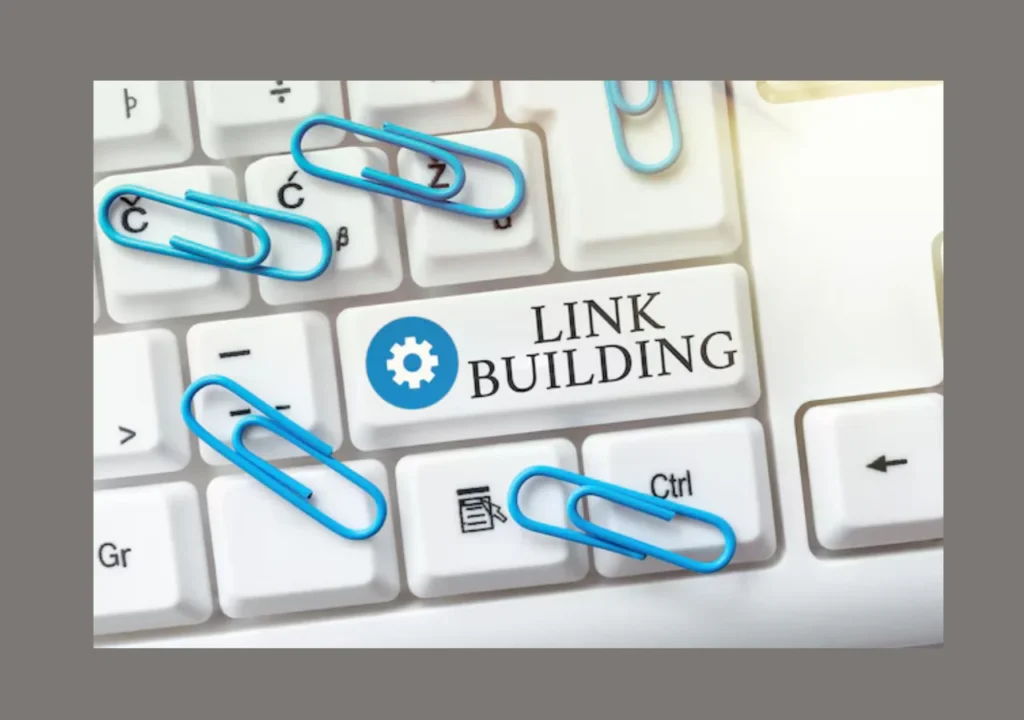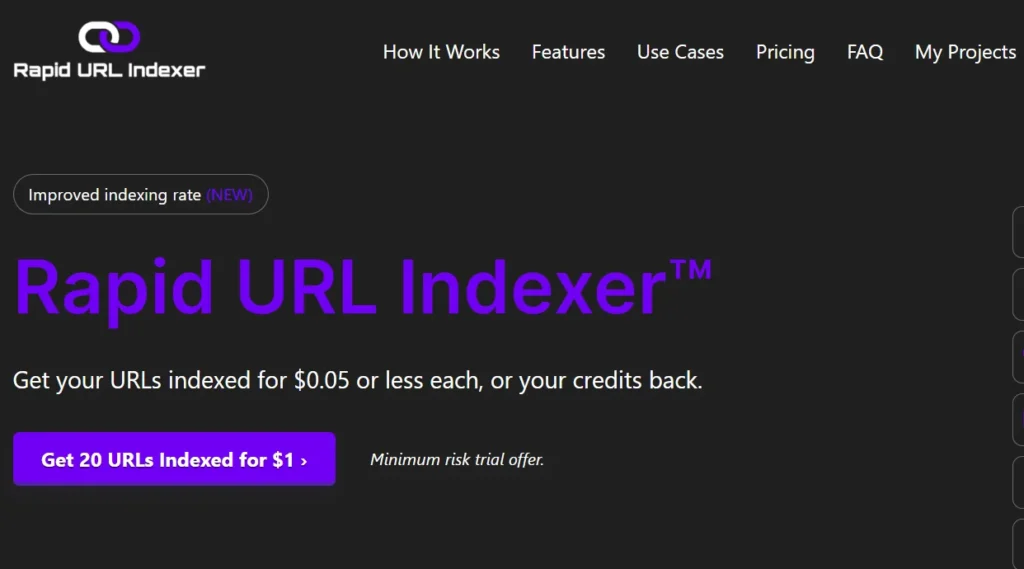If you’re looking to boost your site’s visibility and ensure your content reaches your audience as soon as possible, understanding the power of a rapid URL indexer is essential.
Imagine having great content, the right keywords, and effective backlinks, but Google’s crawlers just aren’t picking up on your new pages. That’s where rapid indexing becomes a game-changer for your link-building efforts.
In this article, I will guide you on how using a rapid URL indexer can elevate your SEO strategy, the steps to effectively build links, and tips to keep your content at the top of search engine results.
The Core of SEO: Link Building and Indexing

Link building is one of the fundamental aspects of SEO. It’s not just about the quantity of links pointing to your site but their quality and how quickly search engines can discover them.
When done effectively, link building can help your website achieve higher rankings on search engines, drive organic traffic, and even establish your brand as an authority in your niche.
However, no matter how many backlinks you have, if they aren’t indexed properly, they essentially don’t exist in the eyes of search engines like Google or Bing.
This is where rapid URL indexing plays a pivotal role. A quick and efficient indexing process allows your pages to get discovered and ranked swiftly, maximizing the effectiveness of your link-building efforts.
What Is a Rapid URL Indexer?

A rapid URL indexer is a tool or service designed to speed up the process of getting your URLs indexed by search engines. Search engines crawl and index billions of pages across the web, but this process can take time.
If your pages aren’t indexed promptly, they won’t appear in search results, leading to missed opportunities for traffic and visibility.
By using a rapid indexer, you can prompt search engines to notice your URLs faster. In the context of SEO, this means that your new or updated content is quickly visible to search engines and, by extension, your target audience.
How a Rapid URL Indexer Improves Link Building
1. Quicker Page Discovery
When you build new backlinks, search engines need to find and crawl these URLs. Using a rapid URL indexer, you can ensure that search engines discover your new pages faster.
This means that your backlinks will start adding value sooner, helping your site gain the authority and visibility it needs.
2. Boosts Organic Rankings
The faster your backlinks are indexed, the quicker they can contribute to your site’s ranking. Links that are rapidly indexed help your site move up the SERP (Search Engine Results Page), leading to an increase in organic traffic.
A rapid URL indexer ensures that the search engine algorithms can see the relevance and importance of your content early on, positively affecting your site’s rankings.
3. Keeps Content Fresh
Freshness is key to SEO success. When your new pages are indexed quickly, it signals to search engines that your site is active and up-to-date.
This not only improves your site’s chances of ranking higher but also builds trust with your audience. A rapid indexer ensures that your content stays fresh, giving you an edge over competitors with slower indexing speeds.
4. Efficient Management of Broken Links
Broken links are inevitable in link-building, but they can damage your site’s ranking. With a rapid URL indexer, you can quickly identify and resolve broken links.
This helps maintain the health of your site and prevents you from being penalized by search engines for poor link structure.
Choosing the Right Rapid URL Indexer
When selecting a rapid URL indexer, there are several features and factors to consider to maximize its benefits for your link-building strategy:
- Speed of Indexing: As the name suggests, a rapid URL indexer should work fast. Look for an indexer that claims quick turnaround times to ensure your pages get indexed within hours or days instead of weeks.
- Ease of Use: A good indexer will have an easy-to-use interface where you can simply input your URLs and track the progress of their indexing. A complicated process can slow down your SEO efforts, so simplicity is key.
- Integration Capabilities: Check if the URL indexer integrates well with your SEO tools or content management system. An integrated indexer can streamline your link-building process, saving you time and effort.
- SEO-Friendly: The indexer must adhere to SEO best practices, quickly indexing your URLs and enhancing your site’s SEO without triggering any search engine penalties.
Steps to Build Links Effectively with a Rapid URL Indexer
To make the most of a rapid URL indexer, it’s crucial to have a structured link-building strategy. Here’s a step-by-step guide to integrating rapid indexing into your SEO strategy:
1. Identify High-Quality Backlink Opportunities
Focus on obtaining backlinks from reputable and high-authority websites. A quality link from an established site carries more weight than multiple links from lesser-known sources. Ensure your backlinks are contextually relevant and come from content-rich pages.
2. Create Compelling Content
Backlinks thrive on valuable content. When you produce engaging, insightful, and useful content, other websites are more likely to link to it naturally. Make sure your content answers questions, provides solutions, or adds value to your audience.
3. Submit URLs to the Rapid Indexer
After creating backlinks and ensuring they lead to quality content, it’s time to submit these URLs to your rapid indexer. Make sure you provide the indexer with updated URLs and ensure that they are not duplicates or broken.
4. Monitor Indexing Progress
Track the progress of your URL indexing. Most rapid URL indexers come with tracking features to help you see which URLs have been indexed and how quickly the process occurred.
This monitoring ensures you stay on top of your SEO efforts and quickly address any URLs that may not be indexing as expected.
5. Analyze Link Performance
Post-indexing, analyze how your backlinks are performing. Use analytics tools to track traffic, rankings, and conversions stemming from these indexed URLs. If certain backlinks aren’t delivering the expected results, adjust your strategy accordingly.
Benefits of Rapid Indexing for SEO Strategy
- Increased Visibility The main benefit of rapid indexing is improved visibility. When your pages and links are indexed quickly. They have a better chance of appearing in search results sooner, leading to increased exposure.
- Improved Domain Authority Consistently getting your content indexed promptly can improve your site’s domain authority. Search engines see your site as a reliable source of fresh, relevant information, which boosts your site’s overall SEO performance.
- Better Link Equity Distribution Rapid indexing ensures that link equity – the value passed from one site to another through hyperlinks – is distributed effectively. This means the ranking potential of your site and linked pages is maximized, improving your overall search engine rankings.
- Enhanced User Experience Users are more likely to stay on your site and engage with your content when they can quickly find what they’re searching for. Rapid indexing allows search engines to serve your content to users promptly, contributing to a seamless user experience.
Top Tips to Maximize the Use of a Rapid URL Indexer
- Regularly Submit New URLs: Make a habit of submitting new content or pages to the indexer as soon as they’re published. This helps maintain a steady stream of indexed content, improving your site’s overall visibility.
- Focus on Mobile-Optimized Content: Search engines prioritize mobile-friendly content.
- Use the Indexer with a Diversified Link-Building Strategy: Relying solely on a rapid URL indexer won’t guarantee SEO success. Combine it with other strategies like guest posting, content marketing, and social media promotion. And influencer partnerships for a well-rounded SEO approach.
- Regularly Clean Up Your Links: Monitor your site for broken or outdated links, and make sure to fix or remove them. A rapid indexer can only be effective when your links are functioning correctly and directing users to valuable content.
Conclusion:
Rapid URL indexing maximizes your link-building efforts, ensuring search engines quickly discover and rank your content.
By implementing a rapid URL indexer, you can enhance your SEO strategy, improve site visibility, and boost your overall domain authority.
Effective SEO means you produce great content, build numerous backlinks, and ensure your content quickly reaches, gets indexed, and delivers to your target audience.
With a rapid URL indexer, you’re putting your site on the fast track to SEO success. Now is the time to take control of your link-building strategy. Submit those URLs, and watch your site’s rankings soar.

